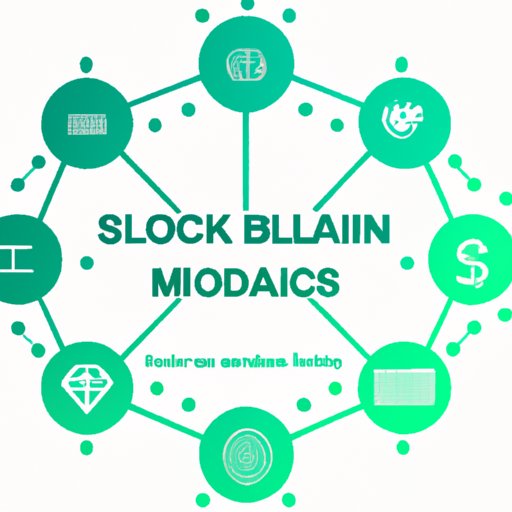Introduction
Blockchain technology has revolutionized the way businesses operate and has become an integral part of many industries. In recent years, blockchain has been increasingly used to support sustainable business practices. This article will explore how blockchain can be used to support sustainable business practices, from tracking of sustainable supply chains to supporting eco-friendly payments.
Definition of Blockchain
Before exploring how blockchain can support sustainable business practices, it is important to define what blockchain is. Blockchain is a distributed ledger technology that is used to store and share data securely. It is composed of blocks of data that are linked together with cryptographic techniques. Each block contains a cryptographic hash of the previous block, which makes it nearly impossible to tamper with the data stored on the blockchain.

Overview of Sustainable Business Practices
Sustainable business practices involve activities that reduce the impact of businesses on the environment. These practices include reducing waste, using renewable energy sources, developing sustainable products and services, and investing in green technologies. By implementing these practices, businesses can improve their environmental performance and also create economic benefits.
How Blockchain Can Support Sustainable Business Practices
The use of blockchain technology can help businesses to more effectively implement sustainable business practices. Here are some of the ways that blockchain can be used to support sustainable business practices:

Tracking of Sustainable Supply Chains
One of the major benefits of blockchain technology is its ability to track the flow of goods and materials through supply chains. This can help businesses to ensure that they are sourcing sustainable materials and that they are meeting sustainability standards. Using blockchain, businesses can track the origin of materials, identify suppliers, and verify the sustainability of their supply chains.
Transparency in Carbon Emissions
By using blockchain, businesses can gain greater transparency into their carbon emissions. This can allow them to track their emissions and set targets for reduction. It can also enable businesses to better understand their carbon footprint and find ways to reduce their environmental impact.
Verifying Sustainable Claims
Blockchain technology can be used to verify the accuracy of sustainability claims made by businesses. For example, businesses can use blockchain to prove that their products and services are indeed sustainable and that they meet certain standards. This can help to increase consumer trust and ultimately lead to increased sales.
Support for Eco-Friendly Payments
Blockchain can also be used to facilitate eco-friendly payments. For example, businesses can use blockchain to accept payments in digital currencies, such as Bitcoin, which are known to be more environmentally friendly than traditional payment methods. This can help businesses to reduce their carbon footprint while still accepting payments from customers.
Improved Waste Management
Blockchain technology can also be used to improve waste management. By using blockchain, businesses can track the movement of waste materials and ensure that they are recycled or disposed of responsibly. This can help to reduce the amount of waste sent to landfills and also help businesses to save money.
Funding for Sustainable Projects
Finally, blockchain technology can be used to provide funding for sustainable projects. For example, businesses can use blockchain-based crowdfunding platforms to raise funds for sustainable initiatives. This can help to ensure that sustainable projects have the necessary resources to succeed.
Conclusion
In conclusion, blockchain technology has the potential to significantly improve sustainable business practices. By using blockchain, businesses can track sustainable supply chains, verify sustainability claims, facilitate eco-friendly payments, improve waste management, and provide funding for sustainable projects. The use of blockchain can help businesses to reduce their environmental impact and also create economic benefits.
(Note: Is this article not meeting your expectations? Do you have knowledge or insights to share? Unlock new opportunities and expand your reach by joining our authors team. Click Registration to join us and share your expertise with our readers.)
